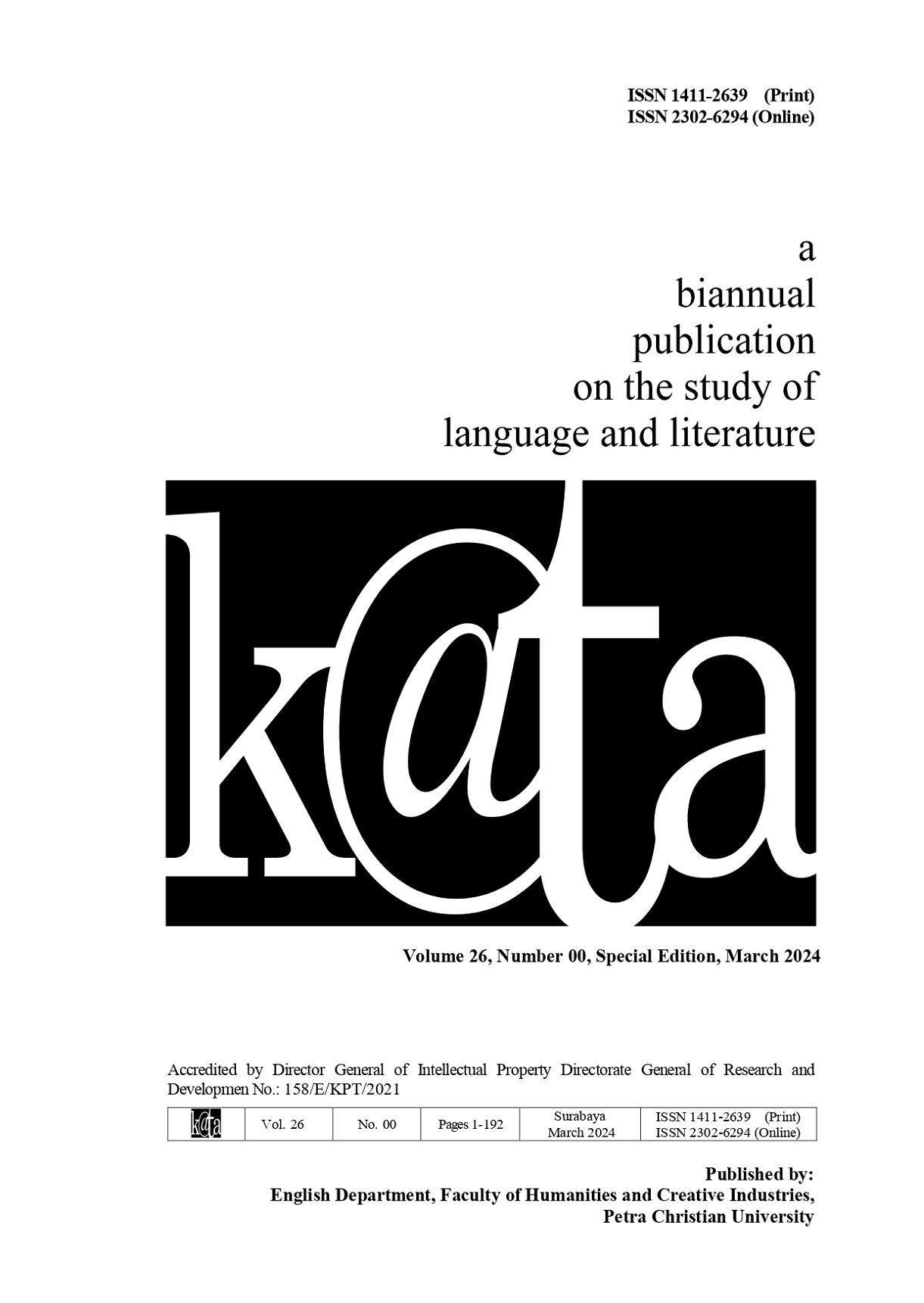Elements of Digital Citizenship within Surabaya City Text in New Media
Abstract
This article identifies digital citizenship texts on the web www.c2o-libarary.net. These texts are analyzed using the concept of digital citizenship which was conceptualized by Westheimer and Kahne (2004), namely “personally responsible citizensâ€, “participatory citizensâ€, and “justice-oriented citizensâ€. These digital citizenship texts are narratives about individual and community activism in cyberspace which are uploaded via www.c2o-libarary.net. Each subject of the author tries to construct activism as a form of critically disseminating information and knowledge to other communities but with a narrative that is easy to understand and digest. The writer's knowledge and interaction in the Surabaya space is a determining factor in the narratives that are published in the media. In the end, the published narrative becomes a collection of concepts and ideas that can guide the government and the people of Surabaya to move forward and better life.
Downloads
References
Deuze, M. (2007). Convergence Culture in the Creative Industries. International Journal of Cul¬¬tural Studies, 10(2), 243–63.
Fairclough, N. (1995). Media discourse. New York: E Arnold.
Fairclough, N. (2003). Analysing discourse textual analysis for social research. London: Routledge.
Fauzanafi, M. Z. (2016). Searching for digital citizenship: Fighting corruption in Banten, Indonesia. ASEAS - Austrian Journal of South-East Asian Studies, 9(2), 289-294.
Foucault, M. (1972). The archaeology of knowledge. New York: Pantheon.
Halliday, M. A.K, & Hasan, R. (1985). Language, context, and text: Aspects of language in a social-semiotic perspective. Victoria: Deakin University.
Isin, E, & Ruppert, E. (2015). Being digital citizens. New York: Rowman & Littlefield.
Jensen, J. L. (2011). Citizenship in the digital age: The case of Denmark. Policy & Internet, 3(3).
Jenkins, H. (2006). Participatory culture in a networked era: A conversation on youth, learning, commerce, and politics. Cambridge: Polity Press.
Kellner, D. (1995). Media culture: Cultural studies, identity and politics between the modern and the postmodern. London: Routledge.
Kligler-Vilenchik, N. (2017). Alternative citizenship models: Contextualizing new media and the new ‘good citizen. New Media & Society, 19(11), 1887–1903.
Krippendorff, K. (2004). Content analysis: An introduction to its methodology. London: Sage Publication.
Lim, M. (2002). Cyber-civic space in Indonesia: From panopticon to pandemonium?, Internatio¬nal Development Planning Review, 24(4), 383–400.
Marshall, T. H. (1950). Citizenship and social class and other essays. Cambridge: Cambridge Uni¬ver¬¬sity Press.
Mossberger, K., & Tolbert, C. J. (2008). Digital citizenship. The MIT Press.
Miller, T. (2006). Cultural citizenship: Cosmopolita¬nism, consumerism and television in a neoli¬beral age. New York: New York University Press.
Nichols, T. (2017). The death of expertise: The cam¬paign against established knowledge and why it matters. New York: Oxford University Press.
Riyanto, A. (2018). Relasionalitas: Filsafat fondasi interpretasi: Aku, teks, liyan dan fenomen. Sleman: Kanisius.
Westheimer, J., & Kahne, J. (2004). Educating the “good†citizen: Political choices and pedagogical goals. PS: Political Science & Politics, 37(2), 241-247.
Zuckerman, E. (2014). New media, new civics?, Policy & Internet 6(12).

This work is licensed under a Creative Commons Attribution 4.0 International License.
![]() This work is licensed under a Creative Commons Attribution License
This work is licensed under a Creative Commons Attribution License




.png)
.png)

.png)












